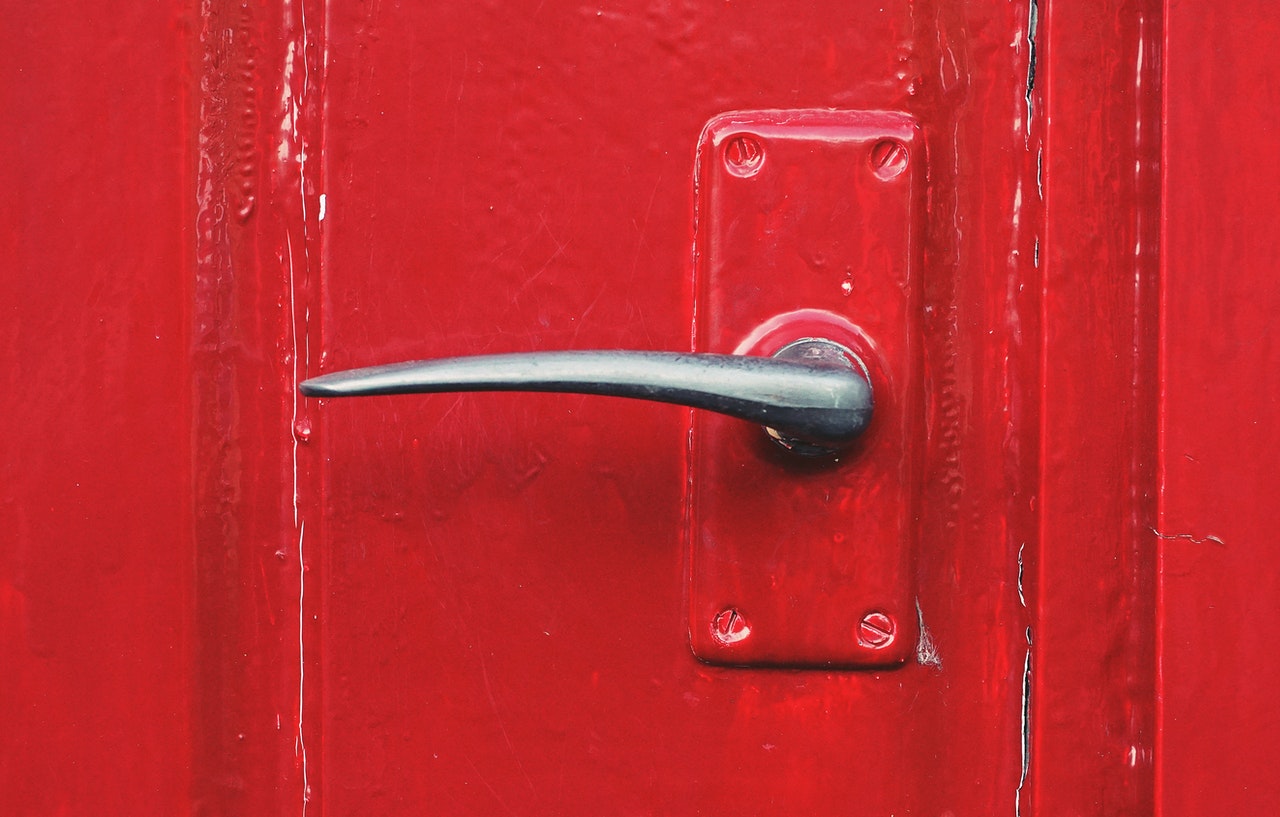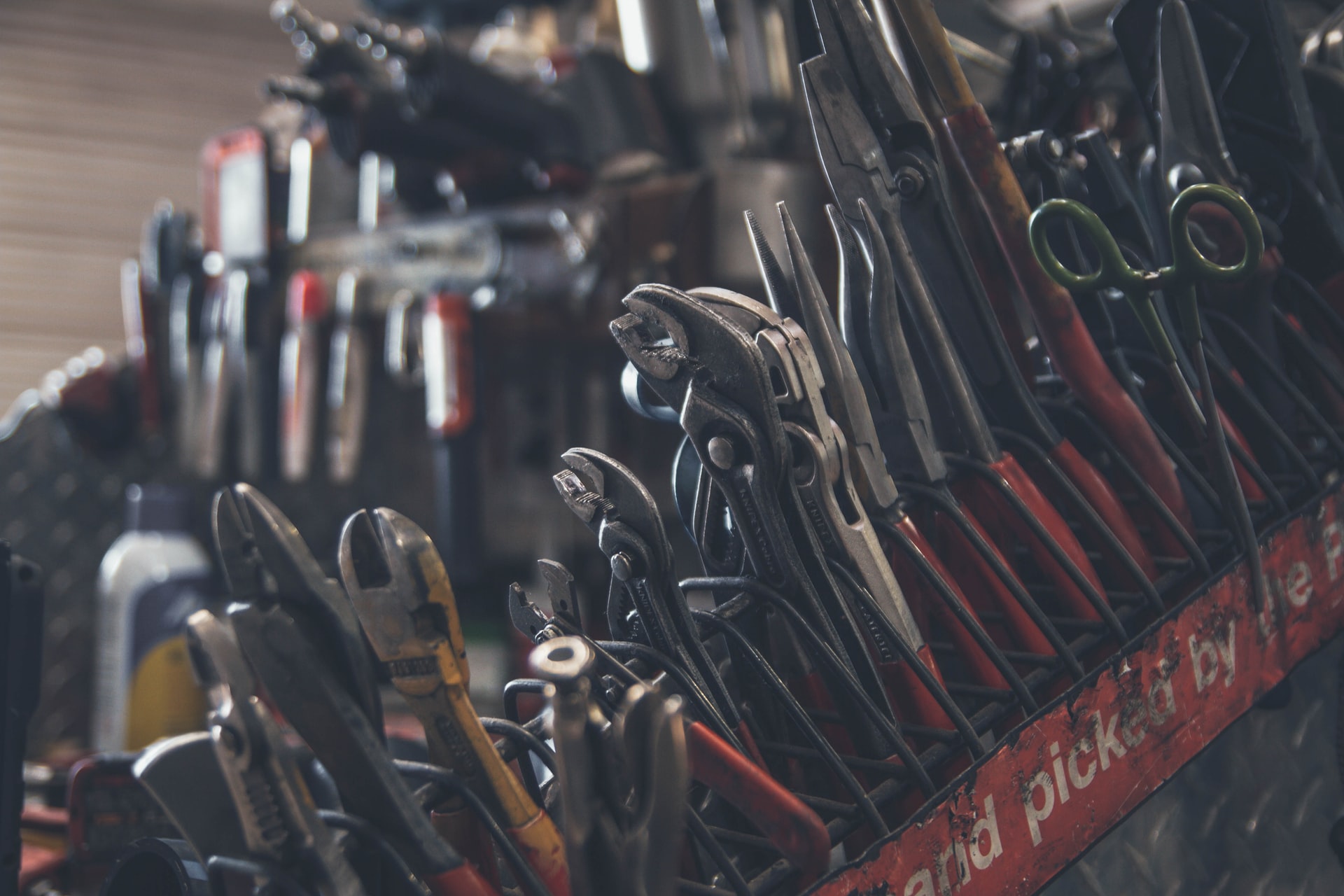I have been reading about burnout recently and in one particular Facebook group I’m on I was surprised to see so many people of a certain profession talking about how to work through burnout. I consider myself a bit of an expert on burnout. I feel like I’ve been burnt out (is that how you say it?) many times throughout my adult life.
I’m currently figuring out how to work through burnout with a trivial project: I bought about 30 doorknobs I need to replace in my house. Each doorknob takes five to ten minutes to replace. It’s really no big deal, but multiply that times 30 and it’s an overwhelmingly boring task. My brain just won’t let me spend five hours replacing every doorknob in one fell swoop.
My high score for one day is, I think, six doorknobs. And I was done.
Trivial, right? But if you take that same concept and apply it to your job, we start to have problems. I can put off installing doorknobs for a few days, even weeks or months. But you can’t put off doing the work you need to do in order to get paid so you can pay your bills. The repercussions of not working through burnout when you are talking about your career are massive. And so I share with you seven tips to help you work through burnout:
#1: Work Through Burnout by Working Less Hours
My first tip might seem counterintuitive but for me, the answer has often been to work less hours. I have a tendency to budget a lot of hours towards things I need to get done. I also have a tendency to think, “I have plenty of time, I can slip this in, work on that other thing for a while, etc. I’ll make up for it later.”
At least in the U.S. I think our tendency is to work more than eight hours a day if we are salaried. I wanted to get a link to that to support it but everything I’m seeing says salaried people work 35 to 40 hours a week. That hasn’t been my experience. I remember one boss I had got into the office around 6am so he could get his own work done for 2 hours, before people came into the office, and stayed until after 6pm, so he could get a quiet hour to do more work after people left at 5pm. That’s more than 8 hours.
My last job, in 2018, was at a company that emphasized having a life outside of work. To help you avoid the need to work through burnout they wanted you to NOT work too much. Here’s what I found: Work less hours made me focus much better while I was at work. I didn’t have time for a five-minute Facebook break (which, as we all know, could easily turn into a 30-minute break). I didn’t have time to fiddle around with stuff that wasn’t important, wasn’t part of my quarterly goals, or didn’t help me get stuff done.
I was FOCUSED. That focus came because I had less time to do things, which was not a problem.
Here’s another example: If I’m going on a trip, and need to wrap things up, I get a lot of stuff done. I get the most important things done! I will get more done in a day and a half because I have to wrap them up then if I give myself a full week with nothing on my calendar.
It’s weird but giving myself less time to do something, which makes me focus on the outcome, is better for me than carving out a lot of time and giving myself a lot of room to work.
So, work less hours, get the important stuff done. Getting things done and crossed off your list is an important part of how you can effectively work through burnout
#2: Remember or Redefine Your “Why”
One of the easiest ways to get caught up in burnout is to forget why you are doing the work you are doing. If you don’t have a why then you are just trudging through your work aimlessly. This might be okay for a little while but multiply this times weeks months, or years and you can fall into a bad place.
Simon Sinek is the big name right now behind the Why. Here’s his Ted Talk where he talks about the importance of your why.
If you find yourself feeling burned out you likely need to redefine your why. Do you go to work for joy and fulfillment? Maybe you need to go to work to finance your life outside of work, and find joy and fulfillment after hours?
I’m not saying you shouldn’t be happy at work. I’m definitely not saying you shouldn’t find joy or fulfillment at work. But I think we, too often, look for joy and happiness at work and then ignore or neglect joy and happiness outside of work.
It kind of makes sense because we spend so much time at work. But ignoring and neglecting our personal time is a mistake, and will likely lead you to read articles about how to work through burnout.
#3: Take Some Serious Time Off
In the Facebook post that inspired this blog post I read a lot of people found taking long, or real, vacations, helped them work through burnout. In Europe they say “holiday” instead of “vacation” and I love that. In the U.S. we tend to not be very good at taking vacations, especially long ones.
If you can take time off, take time off. Too often we save PTO, or vacation time, and feel like we really can’t use it. People have told me they can take a day or two off here and there, but taking a week or two away from work is scary. They wonder if their job will be there when they get back, if someone will take over their duties and they’ll be booted, etc.
This is not healthy. We need to recharge. We need time away from our daily work to see and think differently. Otherwise we get mentally (and perhaps physically) exhausted, which leads to burnout. And being in the depths of burnout is a common place to question life, joy, happiness, purpose, but not through a good lens.
Get away. Go fishing. Go to a cabin. Go to a beach. Go to a hotel room in the city, or a friends house. Or just stay home. Binge shows and eat lots of junk food. Or, do tons of yoga and journaling and eat cleaner than you ever have.
Do whatever you need to get away, for real, and fight burnout. This might be impossible for some people to do, but if you can, it can be a great way to effectively work through burnout.
#4: Get a Change of Scenery
Back in 2017 and 2018 I was… how do you say, bored. Or, perhaps, I was exceptionally burned out. I needed something different. I needed a change of scenery.
And so, to work through burnout at that time, I decided to look for a job. It was a weird experience. But it was so valuable!
My change of scenery planted me in a fast-growing Saas company where I was able to observe how big, funded, sophisticated software organizations work. I was able to work with an exceptional leader who was my age but had a very different career path than what I’d had. I was able to learn so much, and carry those learnings with me today.
I met new people, made new friends, ate at different restaurants (my job was about 20+ miles away), and found new confidence in myself.
It wasn’t all roses. There were some people I didn’t care for. I was back in a place of office politics. Very few people saw, or cared about, the value I brought to my role. It was frustrating going from CEO of my company where I knew everything and managed my team to a position where I was a cog in a huge organization.
Long story short, that role lasted only 10 months. But they were 10 awesome months!
That change of scenery was the recalibration I needed.
Note that I’m not talking about taking a vacation… or time off. That’s what I was talking about in #3. I’m talking about getting out of the rut you are in and putting yourself in a completely different environment. This change of scenery, if you could figure it out, could change your brain.
#5: Learn New Skills to Work through Burnout
One of the most empowering things I’ve done in my life is to learn new skills. No kidding, when I was doing my first big round of doorknobs I had this problem, watched some youtube videos, and figured out how to solve the problem. I honestly thought, “I could do this as a business!” Except that I am not a locksmith and I don’t have good mechanical skills… so that’s out.
But learning how to do something new was invigorating, liberating, and exciting.
Did it have anything to do with my work? NOPE. Except, of course, it gave me something to blog about.
You probably know I have 36 courses in Pluralsight. Next month is, I think, my 10 year anniversary with Pluralsight. I love my work there because I help people learn new skills. I focus on soft skills, which I think can change the world. One of my top courses is on listening… many of my skills can help you with a job search or get promotions.
Learning new skills helps you work through burnout because you are in control of the direction you go, and the new skills you learn could give you more options. When you have more options, you have more hope. You know what helps you work through burnout? HOPE.
Hopelessness leads to burnout. Hope eclipses burnout.
Learn new skills and you open up new paths and options. Just knowing you can do other things can help you work through burnout.
#6: Redefine Job Satisfaction
I think we need to work through burnout when we have a poor understanding of what being happy, or having joy, or chasing job satisfaction means. I have been thinking about this a lot lately. Honestly, I’ve been thinking a lot about this for years and years. The common advice is to follow your passion, but I’m not sure I agree with that (read more here).
As I’ve talked to people about this, one of my thoughts has been that maybe we don’t look for our employer, coworkers, boss, and organizational leaders to give us happiness, joy, and satisfaction. If you look to them for that you will eventually be greatly disappointed.
Let me make this big:
Don’t look for your employer, coworkers, boss, and organizational leaders to give you happiness, joy, and satisfaction.
Again, I’m not saying you should expect to be unhappy at work. Figure out how to be happy at work. What I am saying is you need to learn to find happiness, joy, and satisfaction outside of work! Don’t depend on your job, which might change at any time, to make you happy. Learn about happiness and satisfaction and get on your own journey.
I think detaching your happiness from your work is so empowering. And, funny enough, when you do that you can get closer to having happiness at work because you don’t have that dependency. At least that’s what I’ve found.
One of my buddies told me, years ago, that his father, who was a dentist, was only a dentist to support his computer hobby. His dad loved technology and building computers way more than being a dentist. But being a dentist gave him the financing to do what he really wanted to do.
I think it’s important to redefine, or reframe, what we are after. You don’t have to find bliss for 8 hours a day at work…. maybe you figure out satisfaction while at work while living the life you want to live, financed by your job.
#7: Change EVERYTHING to Work through Burnout
This goes deeper than finding a change of scenery… I’m talking about making some serious career changes. I don’t want to advocate for changing important and good relationships… I’m not saying to leave your family and real friends (although sometimes leaving some relationships is critical for your health).
You might need to change more than just roles or companies. Maybe you change industries! If you are burned out, moving to another company but in the same role might not help. Maybe you need to walk away from the career you’ve been in and do something completely different.
I’m not saying this is permanent… maybe you do this for “a season.” Maybe you take a career detour for a few years. It might be the break you need to work through burnout and get out of your ruts.
One thing I’ve found, personally and through friends I know, is that you build your skills and who you are through experiences. Changing roles, companies, and industries can give you a diversity that you don’t get from staying in one place for too long.
I’m not saying job hop regularly, but definitely consider a massive change if you are trying to figure out how to work through burnout. You got decades to do this career thing… why not take a few years and try other stuff?
Your Ideas to Work through Burnout?
What would you add? Leave a comment here or go over to Twitter and share your thoughts there.



